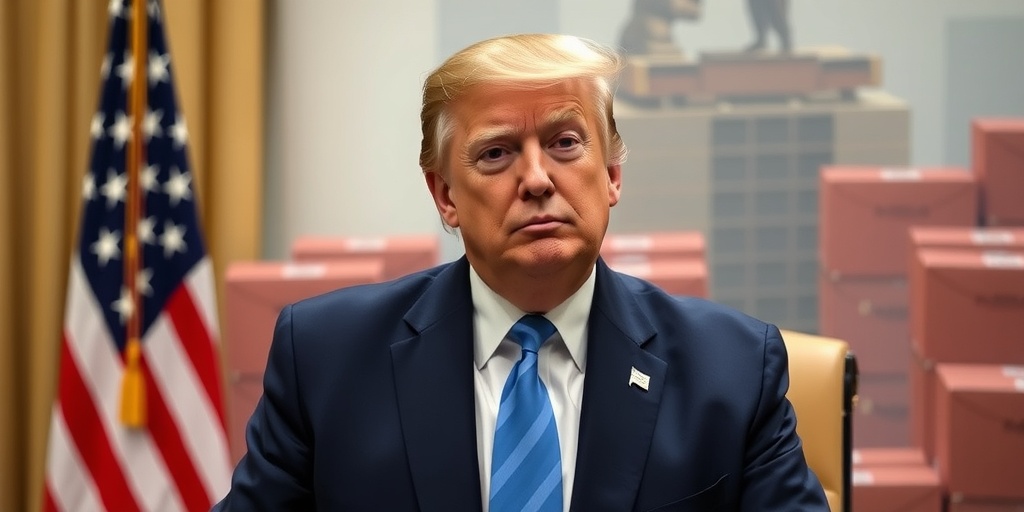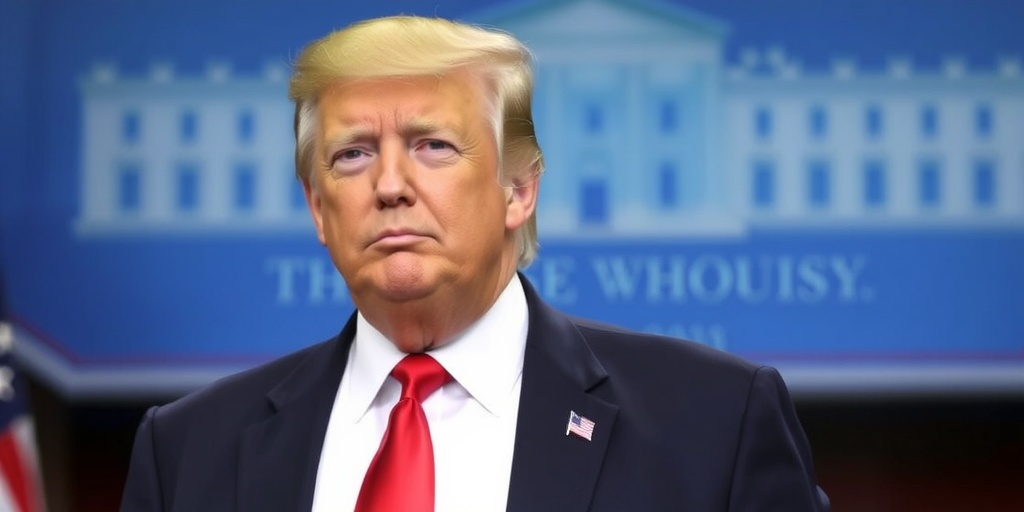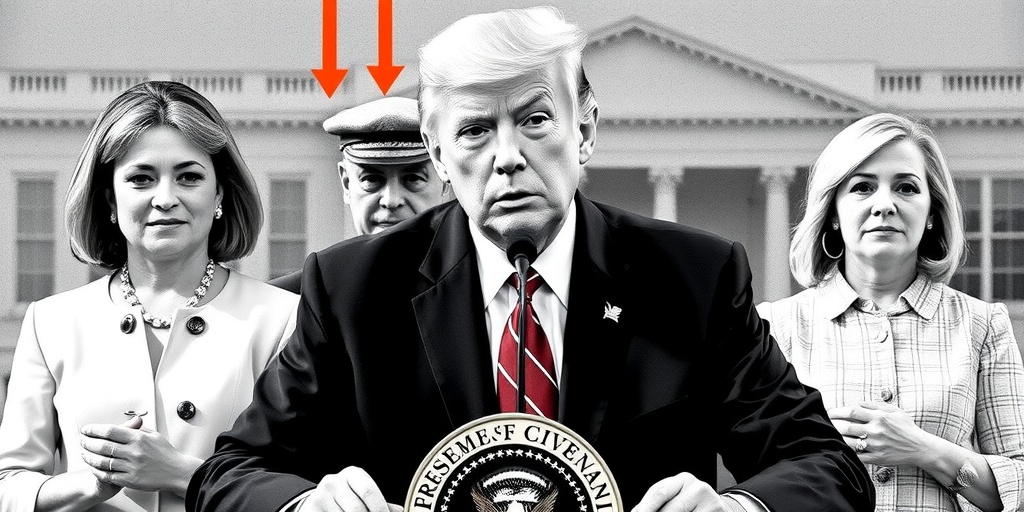Now Reading: Trump Administration Counts Trade Barriers That May Lead to Tariffs
-
01
Trump Administration Counts Trade Barriers That May Lead to Tariffs
Trump Administration Counts Trade Barriers That May Lead to Tariffs

Trump Administration to Announce Global Tariffs Aimed at Addressing Trade Barriers
President Donald Trump is expected to unveil a set of global tariffs on Wednesday, positioning them as a tool to combat what he describes as unfair trade practices employed by other countries. The administration asserts that these tariffs will ensure that American exporters can maintain their competitive edge in the international market.
The announcement comes in the wake of a comprehensive report released by the Office of the United States Trade Representative (USTR) on Monday. This annual document outlines various foreign trade barriers that hinder U.S. exports and foreshadows potential trade disputes that the Trump administration intends to engage in. According to the report, which spans nearly 400 pages, the USTR identified a range of obstacles faced by U.S. businesses in numerous countries, emphasizing an array of tariffs, regulations, and policies that it argues undermine fair competition.
Among the countries highlighted in the report, several key trading partners could be the focus of the administration’s tariffs.
China’s Trade Practices Under Scrutiny
Notably, China has been a long-standing target of trade criticism from American officials. The USTR’s report allocates nearly 50 pages to scrutinizing China’s trade practices, which it claims involve systematic industrial planning aimed at securing dominance in certain critical sectors such as robotics, aerospace, and biopharmaceuticals. The report highlights that China often does this by discriminating against foreign companies and manipulating market conditions to benefit its own enterprises.
Additionally, the USTR points out that China has not fully adhered to commitments made in the trade agreement signed with President Trump during his first term. Key pledges to open its agricultural markets and safeguard U.S. intellectual property rights have not been realized, and trade data reveals that China fell significantly short in fulfilling its promise to purchase American goods and services in 2020 and 2021.
Moreover, China has been criticized for its stringent restrictions on data transfer, complicating the operations of international businesses. The report also notes barriers to U.S. service exports in areas such as cloud computing, film production, and legal services, as well as China’s tightening controls on supply chains affecting the U.S. and its allies.
Canada’s Supply Management Systems and Digital Taxation
The report turns its attention to Canada, where the USTR criticizes the country’s supply management systems governing its dairy and poultry sectors. These systems impose production quotas and price controls that the U.S. argues severely limit its ability to increase exports to Canada. Although the U.S.-Canada-Mexico Agreement expanded access for U.S. producers, tensions remain, particularly over dairy exports.
Additionally, Canada’s digital services tax—a 3 percent fee levied on revenue from online platforms—has drawn fire from the U.S., which contends that such taxes disproportionately target American tech companies that dominate these sectors.
Challenges Posed by the European Union
The report also highlights the barriers U.S. goods encounter within the European Union, despite America’s substantial economic ties with the region. USTR identifies various regulations that unnecessarily restrict trade, including prohibitions on certain chemicals and genetically engineered products that are widely used in the U.S. Additionally, the EU’s forthcoming carbon border adjustment mechanism, which taxes imports based on their carbon emissions, is positioned as another potential area of contention.
Barriers in Other Key Markets
India’s sharply high tariffs are another significant area of concern. The USTR notes that India imposes some of the highest tariffs globally, including steep levies on agricultural and consumer products, along with numerous other barriers that make it challenging for American businesses to compete.
Similarly, Japan, despite its relatively low average tariff rates, is singled out for its barriers affecting various U.S. exports, particularly in the automotive market, where American-made vehicles face significant hurdles in gaining certification for sale.
Mexico is criticized for its unpredictable regulatory environment, which complicates U.S. exports, particularly in pharmaceuticals. The USTR also highlights issues related to online piracy and preferential treatment for state-owned companies in Mexico’s energy sector.
In South Korea, the report notes that, while tariffs on many agricultural products have been eliminated, barriers remain for certain goods, including U.S. beef and pet food, alongside restrictions on cloud services and digital regulations.
Lastly, the USTR raises concerns about Vietnam, particularly regarding its import prohibitions on specific product categories and various restrictions impacting foreign investment.
Overall, the upcoming tariff announcements seem poised to trigger a series of trade disputes as the Trump administration seeks to recalibrate the U.S. trade landscape in alignment with its protectionist policies. As these global trade dynamics unfold, the implications for American businesses and international relations could be profound.
Stay Informed With the Latest & Most Important News
Previous Post
Next Post
-
 01New technology breakthrough has everyone talking right now
01New technology breakthrough has everyone talking right now -
 02Unbelievable life hack everyone needs to try today
02Unbelievable life hack everyone needs to try today -
 03Fascinating discovery found buried deep beneath the ocean
03Fascinating discovery found buried deep beneath the ocean -
 04Man invents genius device that solves everyday problems
04Man invents genius device that solves everyday problems -
 05Shocking discovery that changes what we know forever
05Shocking discovery that changes what we know forever -
 06Internet goes wild over celebrity’s unexpected fashion choice
06Internet goes wild over celebrity’s unexpected fashion choice -
 07Rare animal sighting stuns scientists and wildlife lovers
07Rare animal sighting stuns scientists and wildlife lovers





















